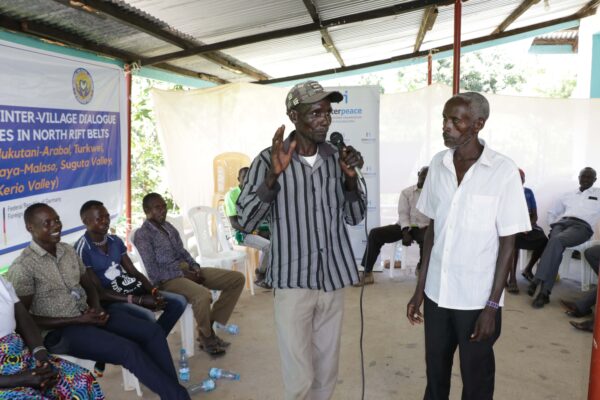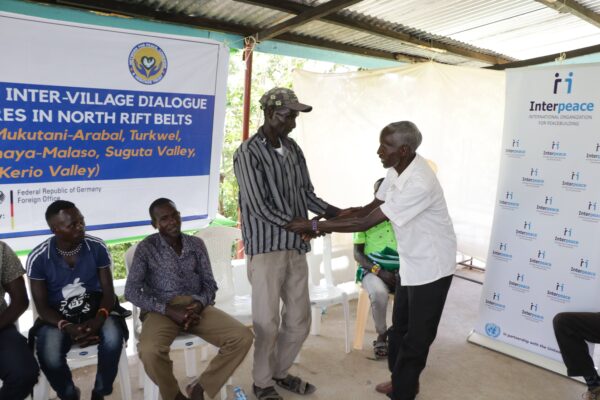Une communauté unie contre les suicides dans la province de Gitega au Burundi
Dans la région centrale de la province de Gitega au Burundi, la communauté Bugendana est confrontée à un défi de taille. Il y a eu une augmentation considérable des cas de suicide, ce qui a provoqué de vives inquiétudes dans la région. Avec une moyenne de quatre vies perdues chaque mois, le phénomène du suicide est devenu une préoccupation pressante liée à la santé, à la paix, à la démocratie et au développement inclusif, ce qui appelle une action collaborative urgente.
Bugendana, commune de 121 401 habitants et d'une densité de 409 habitants au kilomètre carré, porte les cicatrices du passé tumultueux du Burundi. Lors des violences interethniques qui ont frappé le pays dans les années 1990, cette région a été durement touchée, laissant de profondes blessures psychologiques qui ne sont pas encore cicatrisées. Les effets persistants de ces crises ont eu un impact sur la santé mentale et le bien-être psychosocial de la population, intensifiant ainsi les défis existants.
Reconnaissant la gravité de la situation, l'administrateur communal de Bugendana a affirmé : « Le phénomène du suicide est une réalité... les taux sont encore plus élevés par rapport aux taux de suicide enregistrés dans d'autres communes... nous ne connaissons toujours pas les causes de ce phénomène ».
Cependant, face à l’adversité, une évolution positive est apparue au sein de la communauté elle-même. Le groupe communautaire Bugendana, avec le soutien du projet Synergy for Peace III, qui cherche à faciliter des initiatives inclusives et collaboratives en matière de moyens de subsistance et de cohésion sociale, s'est réuni pour faire face à cette crise. Identifiant le problème du suicide comme une priorité, il a établi un plan d'action pour s'attaquer à cette situation.
L’administrateur local, qui est également membre du groupe communautaire Bugendana, a participé aux discussions et a souligné l’urgence d’agir : « Nous devons mener des campagnes de sensibilisation et organiser des activités de soutien psycho-émotionnel pour les membres des familles des personnes qui ont commis un suicide. Les administrateurs des collines devraient également être dotés des compétences nécessaires pour identifier les signes de détresse parmi les habitants de leurs communes afin de pouvoir intervenir le plus rapidement possible ».
En étroite collaboration avec les autorités locales, le groupe communautaire Bugendana a identifié des personnes ayant des pensées suicidaires ou dont des membres de la famille se sont suicidés ou ont tenté de se suicider. Il prévoit de leur apporter un soutien psychosocial à travers des espaces de guérison communautaires. Ceux-ci accueilleront également d’autres membres de la communauté traversant des périodes difficiles de leur vie. Ils oeuvreront comme sanctuaires à ceux qui sont aux prises avec la détresse, leur apportant le réconfort et l’espoir indispensables pour l’avenir.
L'initiative a reçu les éloges des membres de la communauté et de l'administration. Le chef de la commune Bugendana a salué l'initiative affirmant : « Au-delà de la sensibilisation communautaire, les espaces de guérison mèneront des interventions d'accompagnement ciblées et approfondies pour mieux répondre au phénomène du suicide dans cette communauté ».
Alors que la communauté Bugendana s’unit pour faire face aux ravages du désespoir, ses efforts résonnent avec le pouvoir des initiatives locales pour construire un avenir meilleur. Si elle réussit à réduire les taux de suicide et à promouvoir la santé mentale, cette initiative pourrait œuvrer comme lueur d’espoir et inspirer une réplication dans d’autres provinces et même à l’échelle nationale.
Dans un contexte où les traumatismes psychologiques sont répandus, les efforts communautaires visant à promouvoir la santé mentale et le bien-être psychosocial sont non seulement cruciaux, mais témoignent également de la résilience de l’esprit humain. Le parcours de la communauté Bugendana est un voyage de guérison, d’unité et de détermination inébranlable à récupérer son bien-être collectif dans les profondeurs du désespoir.






